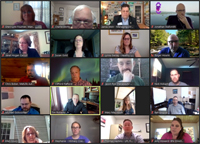Something many folks overlook is occasionally checking their website’s functionality. I recommend doing this every couple weeks, but at minimum once a month.
Most websites and the servers they are on are subjected to ongoing software updates. Unless you are paying an additional fee for maintenance checks, it’s normal for things to occasionally break due to updates.
Most website owners are not paying additional fees for such maintenance. This means you really need to take the time to check:
– that the site appears to work properly
– that your hours of operation are correct
– that any website forms are working
– that email addresses are correct
The site operation and forms are most susceptible to software updates. If you have a good web developer, the fixes will happen quickly and it will not cost you too much.
Website maintenance should be thought of like automotive maintenance. We get oil changes. We get inspections. We even make modifications and do repairs to keep our vehicle operating the way we want. And our older vehicles can cost more to upkeep – just like older websites. As websites age, more work needs to be done to keep them secure and working as originally intended.
So check your site every now and then to keep things working and have the correct information out there!




